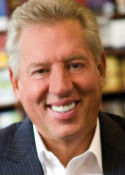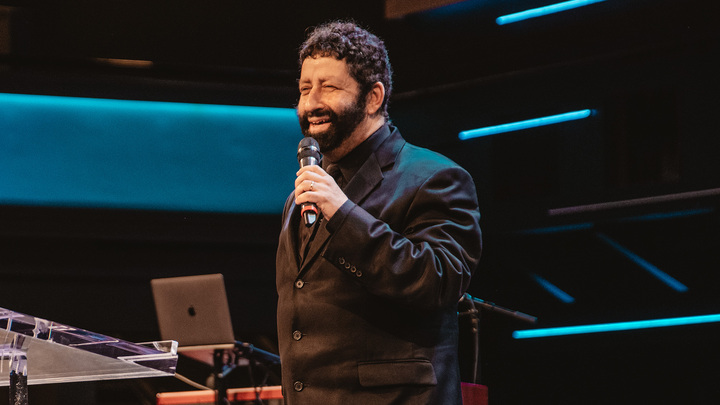When my wife, Margaret, and I were young, we had a desire to develop some kind of financial security for our future. There was only one problem. With the income I was making at the time, it just wasn’t going to happen.
When I had an opportunity to invest in a nursing home partnership, however, I couldn’t just turn it down. We didn’t have enough money for the investment and my salary wasn’t big enough to get a loan from a bank. So, I decided to ask a friend for help.
My friend loaned me the money I needed, and, in return, I helped him get into the partnership too.
As that investment started paying off, Margaret and I never took a penny. We gave some of the money away, but we funneled most of it right back to my friend until the loan was paid off completely.
Later, when we began to have other opportunities in nursing homes, Margaret and I realized that we never would have gotten to that point if my friend—and others like him—hadn’t given us a little extra help along the way.
Someone once said, “If you see a turtle on top of a fencepost, you know he had help getting there.” I’ve never been inclined to compare myself to a turtle, but in this case, the comparison is accurate.
Like that turtle, I didn’t get where I am today on my own. I’m not that good. I’m not that fast. I’m not that smart. I’m not that gifted.
That’s the way it is with most—if not all—truly successful people: They didn’t get there on their own.
You Didn’t Do It On Your Own…
Think about your own situation. Are you where you are today entirely of your own accord? I doubt it. You may be incredibly gifted, intelligent, and industrious, but I suspect that you, too, can think of at least a few people who gave you a leg up when you needed it the most.
There are two kinds of help that help me. The first one is opportunity. It’s great to be on the receiving end of such help, but it’s even more wonderful to be in a position to open a door for someone else. As the saying goes, “An opportunity is never lost; it’s just passed on to someone else.”
The second kind of help that helps me is advice from the right people. If you accept advice from everyone or take it from no one, you’re headed for disaster. But when you get good counsel from the right people, you set the stage for success. So who are the right people? They are:
- People who have success and experience in the area where you need help.
-
People who have unconditional love for you.
- People who have good thinking skills.
- People who have nothing to gain by your choice.
- People who are not emotionally involved in your situation.
Publilius Syrus was exactly right when he said, “Many receive advice, but only the wise profit from it.” When you get advice from the right people, listen to it and heed it. That’s how you grow—personally and professionally.
The longer I live, the more grateful I am for people who have assisted me with opportunities and advice. I can express my gratitude to them in words, but another way I can do it is by helping other people the way I have been helped.
As a leader, you’re in a great position to do that too. When you have been blessed by someone else, don’t be a reservoir. Be a river. Pass it on. Add value to someone else.
Take it from a turtle on a fencepost. Lend a helping hand when you can. Few things in life are more rewarding.
free monthly e-newsletter: Leadership Wired
available at www.INJOY.com.
John Maxwell grew up in the 1950s in the small Midwestern city of Circleville, Ohio. John's earliest childhood memory is of knowing that he would someday be a pastor. He professed faith in Christ at the age of three, and reaffirmed that commitment when he was 13. At age 17, John began preparing for the ministry. He attended Circleville Bible College, earning his bachelor's degree in 1969. In June of that same year, he married his sweetheart, Margaret, and moved to tiny Hillham, Indiana, where he began his first pastorate.
While serving in his second church, Maxwell began to study the correlation between leadership effectiveness and ministry effectiveness. On July 4, 1976, while preaching at a service commemorating America's bicentennial, John sensed that God was calling him into a ministry to pastors. Within days after that event, pastors began to contact him, asking for his assistance in nurturing their churches. Over the next four years, on an informal basis, John helped scores of fellow pastors. Then, in 1980, he was asked to become Executive Director of Evangelism for the Wesleyan denomination.
Though his time at Wesleyan headquarters was productive, John soon realized that his deeper desire was to help pastors from numerous denominations. He knew that desire would be unfulfilled if he were to stay at denominational headquarters. As a result, in 1981 John accepted the call to return to the pastorate, this time at Skyline Wesleyan Church in the San Diego, California area. But he did so with the church's blessing to pursue his vision. The Skyline congregation allowed him to continue mentoring and assisting pastors even as he led them to new levels.
In 1985, as he continued to equip and encourage other pastors, John took the next crucial step in leadership development. He founded a new company called INJOY and created the INJOY Life Club, featuring a monthly tape for leaders. The fledging operation, established in the corner of a garage, was soon bursting at the seams. The INJOY Life Club tapes were received with great enthusiasm, and the number of subscriptions quickly increased from hundreds to thousands. Simultaneously, the demand for other resources and seminars exploded. Pastors from coast to coast were responding, and their desire for help was even greater than John had anticipated.
As the years passed, INJOY began demanding more and more of John's time. In 1995, he resigned from his position as senior pastor at Skyline following a very fruitful 14-year tenure. The church had tripled in size and its lay ministry involvement had increased ten-fold. Dr. Maxwell is in great demand today as a speaker. Through his bestselling books, audio and video resources, and major conferences, he communicates directly with more than one million people every year. He is frequently asked to speak for organizations such as Promise Keepers and Focus on the Family, but his greatest joy and desire is to help pastors become better leaders.
Because the need for leadership development knows no borders, John established EQUIP, a non-profit organization which trains leaders in urban communities, academic institutions, and within international organizations. EQUIP is also spearheading a movement which has enlisted more than one million pastoral prayer partners who covenant to pray specifically for those who shepherd God's flock.
John continues to seek new opportunities to help churches and church leaders. He knows that one thing is constant: the only hope for the world is salvation through the Lord Jesus Christ, who gives life abundantly.






